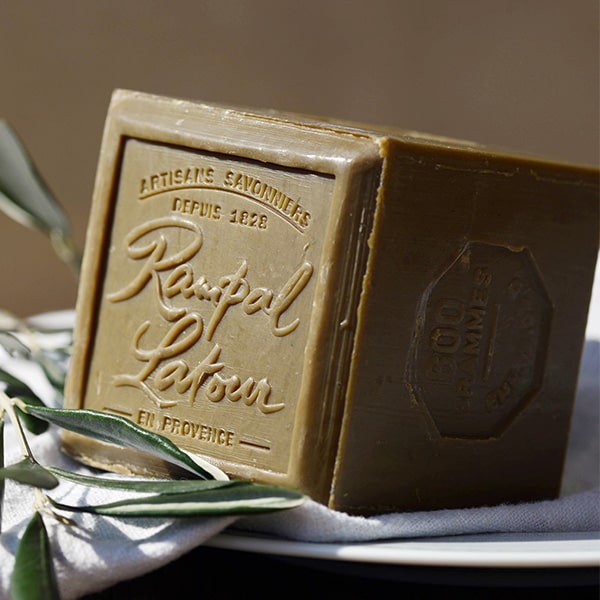Without a state label, how can you recognize a traditional Marseille soap?
Marseille soap is a cult product, a symbol of our heritage. Enjoying a very attractive image that crosses borders, the famous cube often suffers in spite of itself from identity theft. Indeed, the reason for this state of affairs is simple and implacable: the name “Marseille soap” does not benefit from any protection. This denomination is often misused and it is now common to find soaps of all shapes, all origins, all qualities and all provenances unduly stamped "Marseille soap". This can be misleading for the consumer who is looking for noble soap with impossible-to-counterfeit virtues.
– 100% of the oils that make up Marseille soap are vegetable.
The oils can come from different plants (often the olive) but must be exclusively vegetable. So you will find on the list of ingredients "Sodium Olivate" (from olive oil), "Sodium Cocoate" (from coconut oil) or "Sodium Palmate" (from palm oil ).
Tip: if you read on the label of your soap "Sodium Lardate" (pork fat) or "Sodium Tallowate" (beef fat), it is not the real Marseille soap.
– It must be composed of at least 72% oil.
--------------------
Tip: you can inquire with the manufacturer and check that the words 72% or Extra Pure are well molded on one of its 6 sides. Real Marseille soap is also stamped with the name of the soap factory that makes it.
– It is made from oils, water, soda and salt exclusively.
--------------------
Tip: Avoid labels with an extended list! Marseille soap does not contain more than “6 ingredients” in its recipe. It must be guaranteed without perfume, without preservatives, without any synthetic adjuvant...
– Marseille soap never contains dye.
--------------------
Tip: Authentic Savon de Marseille is made from oils that color it naturally. Savon de Marseille is green to brown in shade when it is made of olive oil, white to beige when it contains only palm oil and coconut oil.
– Its manufacturing process follows traditional manufacturing techniques.
This guarantee of authenticity guarantees that the soap is well produced in a cauldron according to the major traditional manufacturing steps.



